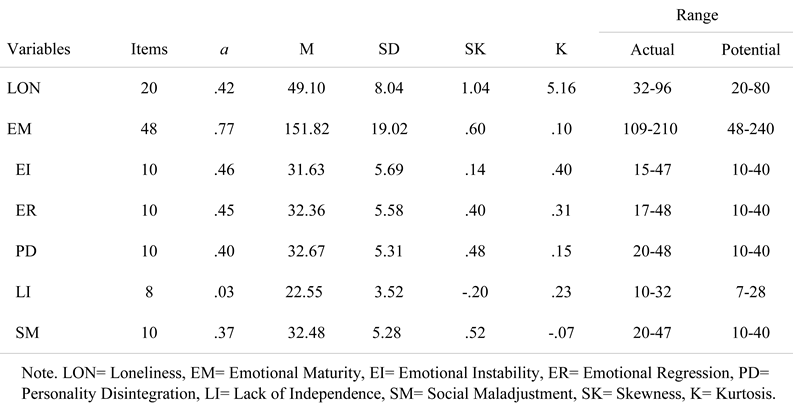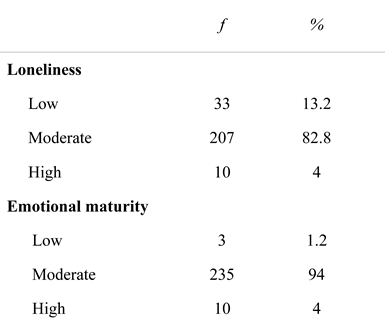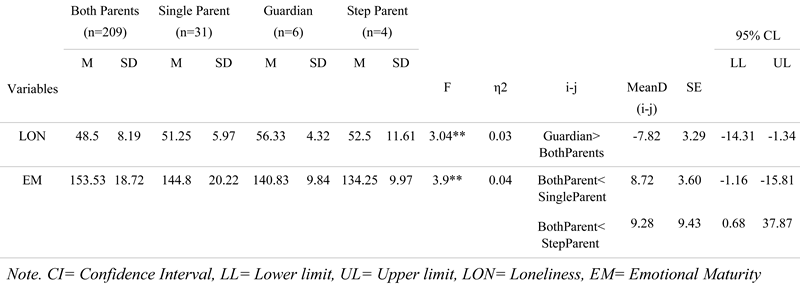Introduction
The primary role of parents in the family environment is to prepare children for adulthood through rules, discipline, and support [
1]. Adolescence is the period when children begin to learn about the real world and strive to become integral members of social groups, though often struggling to establish their own independence [
2]. Adolescence is sometimes a turbulent period: teens are often unable to discuss their thoughts and feelings with adults, yet they also wish to explore and experience untried things [
3,
4]. Various studies have emphasized the importance of parental presence in the life of adolescents, as they need the experienced and reliable support of parents who can provide for their basic psychological and physical necessities.
Effect of absence or presence of parents in life of adolescents
Parents not only encourage and enhance the child’s personality but also influence their psychosocial development. Children and adolescents who live with both biological parents tend to have a more stable level of well-being, whereas those in single parent families have a lower level of well-being during both childhood and adulthood [
5]. The experience of losing a parent can have an intense effect on the psychological development of a child. Children in single parent homes may develop a sense of insecurity, feel alone, and show immaturity in their behavior. In so doing, they are often less prepared to adapt to the demands of society and at emotional regulation.
Emotional maturity
Emotional maturity represents the ability of people to check and manage their emotions, to assess the emotional state of other individuals, and to exert control over their own judgment and actions [
6,
7]. The theory of emotional maturity by Franz Alexander posits that individuals reach psychological maturity only when they attain a specific level of intellectual formation and can maintain a certain level of emotional outlook [
8]. The relationship between parents and adolescents is reflected as a feature of social/emotional development. According to one study, emotional immaturity can lead to feelings of loneliness among adolescents, and emotional immaturity and loneliness together can influence the person’s satisfaction with life [
9]. Specifically, an emotionally immature person tends to feel lonelier and has less ability to regulate emotions than emotionally mature counterparts.
Perceived loneliness
Loneliness can be defined as a disturbing experience felt by individuals when they perceive their social relationships to be less in quality, and quantity, than desired [
10]. Weiss has suggested that an absence of social skills may be associated with loneliness. Individuals who have particular deficits in their relationships may experience different forms of loneliness: emotional or social loneliness [
11]. The theory of loneliness suggests that insufficient requirement of specific social relationships can bring about specific kind of feelings of loneliness. For example, if there is an absence of attachment with a trustworthy adult for the adolescent, the adolescent may develop emotional loneliness along with anxiety and insecurity. These needs in adolescents are typically taken care of by the parents, as they are a reliable source of support as they provide nurturance to their children.
Significance and rationale of the study
This study intends to assess the differences in emotional maturity of adolescents as a result of parental status in the home. Limited research has examined this relationship, especially in the context of a culture such as Pakistan. Being a collectivistic society, parents in Pakistan have the major role of contributing to the healthy development of their adolescent children. At the same time, they are sometimes overinvolved in their children’s triumphs and failures, which can have both positive and negative consequences.
Adolescence is a vulnerable age during the development of an individual, being a time that is simultaneously stressful and exciting and that requires oversight from parents. This stage of life is both socially significant and psychologically complex. Encouragement and reinforcement from parents are crucial for adolescents and, if not present, can lead to various psychological disorders such as anxiety, depression, low self-esteem, and low self-confidence [
12]. Although the relationship between emotional maturity and perceived loneliness has been established in previous research, the current study investigates the role of parental presence on this relationship, findings of potential relevance to the well-being of adolescents in the indigenous culture of Pakistan.
Study Objectives
This study aimed to (1) determine differences in the Emotional Maturity and Perceived Loneliness among adolescents in relation to parental status; (2) determine the general correlation between emotional maturity and loneliness; and (3) to assess whether effects were different for male vs female adolescents.
Materials and Methods
Participants
The sample, recruited through purposive convenient sampling, was comprised of 250 adolescents (Males n=125 and Females n=125), ages 13-18 years (M=16.63, SD=0.87). Participants were approached at different schools, colleges, institutes, and universities in Karachi, Pakistan. Two groups were made differentiating adolescents who have both parents from those who do not.
Inclusion criteria
Children who fell into the following categories were included in the survey research: Adolescents aged 13 to 18 years; living with both of their parents, one parent, guardian, or other (aunt or uncle); studying in school, college, or university, from grade 8 to 2 semester college.
Table 1 shows demographic characteristics of the study sample.
Measures
Informed consent form. Participants were required to sign an informed consent form before proceeding with the study. Participants were briefly informed about the purpose of the research, confidentiality of their information, and their right to withdraw from the study at any time.
Demographic form. Information about the participants’ basic profile was collected, including age, gender, family structure, family history, and education history.
Emotional Maturity Scale (EMS). This scale, developed by Singh and Bharagava, has 48 items assessed on a 5-point response scale which measure emotional maturity using five dimensions: Emotional instability, Emotional regression, Social maladjustment, Personality disintegration, and Lack of independence [
13]. A total score was calculated by adding the scores of all five dimensions, with higher scores indicating greater emotional immaturity. The psychometric properties of the scale demonstrate overall reliability of 0.75. Internal consistency for subscales was as follows: Emotional stability, 0.75, Emotional progression, 0.63, Social adjustment, 0.58, Personality integration, 0.86 and Independence, 0.42. The scale was also validated against external criteria using the area of adjustment inventory for college students [
14,
15].
University of California Los Angeles Loneliness scale UCLA (version III). This 4-point self-reporting scale has 20 items which measure subjective feelings of loneliness and social isolation. Items 1, 5, 6, 9, 10, 15, 16, 19 & 20 in scale were reversed and the scores of all the items was added together. Higher scores indicated greater loneliness. Test-retest reliability for this scale is 0.73 (over a 1-year period), and internal consistency ranged from 0.89 to 0.94. Convergence was indicated by significant correlations with other measures of loneliness [
16,
17].
Table 1.
Frequency and percentages of Demographic characteristics of the study sample (N=250).
Table 1.
Frequency and percentages of Demographic characteristics of the study sample (N=250).
Procedure
Permission to use the various scales was obtained from respective authors. For recruiting participants, authorities of schools (secondary section), colleges, and universities were provided with a formal permission letter issued by the Institute of Professional Psychology, Bahria University Karachi.
Data collection was begun at different assigned dates decided by the authority of schools and universities. The final sample of 250 participants ranged in age from 13 to 18 and was drawn from a variety of institute levels and departments.
Following a description and purpose of the study, informed consent was obtained. Participants were also assured about the confidentiality of their identity, personal information, findings, and responses. Demographic information was collected first, after which participants were requested to read the instructions carefully for each test before completing the items; assistance with instructions was provided as needed. Participants sat comfortably in quiet/calm conditions, interruptions were minimized, and approximately 10-15 minutes was allotted for each questionnaire. Once completed, forms were collected and participants were debriefed. Gratitude was extended to the participants for their cooperation and participation. Data were coded and analyzed using Statistical Package for the Social Sciences (SPSS).
Discussions
Our results indicate that perceived loneliness and emotional maturity are associated with parental status, i.e., adolescents who were living with their guardian had greater perceived loneliness than those who were living with their parents. However, adolescents who were living with their parents had lower emotional maturity compared to the adolescents living with step parents or single parents. Moreover, there was a weak/moderate negative correlation between emotional maturity and perceived loneliness among adolescents.
Emotional maturity is a phase of personality development related to biological and psychological maturation. Individuals are considered emotionally mature when they are able to regulate their emotions. Emotional maturity is not only related to personality characteristics but it also enables positive adolescent development [
19,
20]. In Asian cultures, for example in Pakistan, emotional maturity assumes control over ones’ emotions rather than revealing them or acting them out. Our study revealed differences in emotional maturity of adolescents related to the presence or absence of both parents. Our results indicate that adolescents whose both parents are present are less emotionally mature compared to those whose parental status is different. Such findings suggest that in the absence of parents, adolescents have to face life challenges on their own, often taking responsibility for the positive or negative consequences. In contrast, in Pakistani culture, adolescents often share their feelings with their parents and seek guidance from them, but this close relationship between parents and the young adult may also serve to buffer them from pressures and problems. As a consequence, their emotional maturity may not develop as quickly. Although adolescents need the support of their parents, this support may become invasive, with parents becoming too involved in the affairs of their children. That is, while adolescents want the support of their parents, they may not appreciate their overinvolvement, particularly when parents closely monitor and have strong bearings over their children’s life [
21].
Researchers have defined loneliness as the unpleasant feeling when people perceive their social relationships to be insufficient in a quantitative or qualitative way. The perception of loneliness is different for every individual, depending on their circumstances and personality [
22,
23]. Relevant to the current study, in Asian cultures parents are often over-engaged with their children’s affairs, leading the adolescent to disengage in order to establish themselves as being independent of their parents—yet still needing them during challenging times. In fact, perceived parental support is a key protective factor for adolescents’ mental health during a developmental period when they often feel high levels of distress [
24,
25]. Loneliness occurs when children with insecure attachment patterns behave in ways that cause rejection by their peers. Those rejections make their development of social skills difficult and increase their distrust of other people, thereby fostering ongoing loneliness [
26].
We hypothesized that levels of emotional maturity and perceived loneliness will differ among adolescents in home environments having different parental status. In the cultural context of Pakistan, parents play a vital role in the shaping of the personalities of their growing adolescents, and thus they require strong emotional support from parents. The absence of parents actually improves emotional maturity but also leads adolescents toward feelings of loneliness, not surprising in the absence of strong emotional support [
27,
28]. Such children may feel the need to compensate by seeking social support from other sources and may find fulfillment of needs from their environment, also accounting for their greater emotional maturity.
Adolescents living with guardians experience greater loneliness than those living with both their parents. In Pakistani culture, during adolescence, individuals are often readier to confront and show disagreement with their parents. It may be that a guardian is less likely to understand and manage the adolescent’s issues in the same way that parents can. Despite these differences, divorce has been shown to decrease a child's future competence in many areas of life, including family relationships, education, emotional well-being, self-integration and personality building. However, whether the poorer adjustment is due to the divorce per se, or to the lack of a biparental home is unclear.
Correlational analysis between perceived loneliness and emotional maturity showed a significant negative but weak relationship between perceived loneliness and emotional maturity, as well as with all the emotional maturity subscales. These negative relationships might be explained by the protective environment associated with biparental homes, where adolescents often have little room to explore and substantial restriction on their decision making. As such, while they are less lonely, they are also less likely to develop independence and emotional maturity, as is seen to occur in single parent/guardian families.
Finally, the results revealed that the associations between loneliness and emotional maturity were largely independent of the sex of the participant. That is, whether male or female, loneliness and emotional maturity were similar. The traditional assumption that adolescent girls show emotional maturity earlier than adolescent boys was not apparent in our sample. This lack of difference may result from the traditionally strong family environment in Pakistan, where both sexes tend to be equally pampered [
29,
30,
31]. Such cultural differences are noteworthy, given that few studies have investigated such relationships in non-Western samples. However, further research is needed to confirm such patterns of loneliness and emotional maturity in other non-Western cultures.










